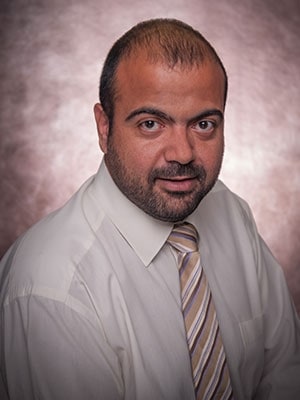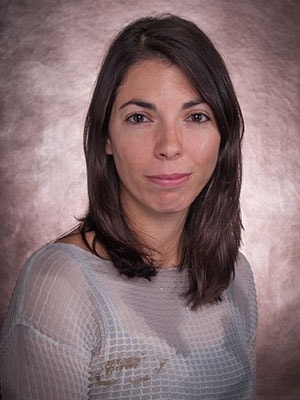Biomedical Sciences
(MSc, 1.5 Years or 3 Semesters)
Duration
1.5 years or 3 semesters
Qualification Awarded
Master of Science in Biomedical Sciences – Immunology, Master of Science in Biomedical Sciences – Hematology
Level of Qualification
Master Degree (2nd Cycle)
Language of Instruction
English
Mode of Study
Full-time or Part-time
Minimum ECTs Credits
90
Request Information
Biomedical Sciences (MSc, 1.5 Years or 3 Semesters)
| Duration | 1.5 years or 3 semesters |
| Qualification Awarded | Master of Science in Biomedical Sciences – Immunology Master of Science in Biomedical Sciences – Hematology |
| Level of Qualification | Master Degree (2nd Cycle) |
| Language of Instruction | English |
| Mode of Study | Full-time or Part-time |
| Minimum ECTS Credits | 90 |
Request Information
Profile of the Programme
Aim of the Programme:
The MSc Programme in Biomedical Sciences aims to provide high-quality education and have graduates with strong professional integrity and expertise in fields related to laboratory diagnosis and disease monitoring. This integrated programme promotes core theory, practical skills, and research principles in biomedical sciences. Additionally, it emphasizes teaching clinical specialties in one of the following fields: Immunology, Hematology, Microbiology, and Clinical Biochemistry. Currently, the program enables graduates to specialize in Immunology or Hematology. In due course, concentration courses in the other two fields/specializations (Microbiology and Clinical Biochemistry) will be added to the program, allowing graduates to study and specialize in one or more areas based on their interests and career aspirations.
Educational Aims of the Programme:
The educational aims of the programme refer to and comply with the subject benchmarking of the European Federation of Clinical Chemistry and Laboratory Medicine (EFLM) syllabus (version 5: 2018) as well as with those of the UK QAA organization (ISBN 1 84482 146 3 © Quality Assurance Agency for Higher Education 2004).
The general objectives that apply to all concentrators of the programme (Immunology, Hematology, Microbiology, and Clinical Biochemistry) are to:
- Provide knowledge of and insight into the biochemical processes in human health and disease.
- Introduce the scientific basis of modern bioanalytical instrumentation and technologies used for research and clinical diagnosis.
- Promote the practice of transferable skills in data collection, analysis, evaluation, interpretation, and reporting.
- Promote research skills and enable graduates to develop, evaluate, and provide new diagnostic services.
- Teach the competencies required to manage and audit scientific techniques and procedures and maintain quality standards.
- Teach practices of Quality Assurance and introduce management skills for a clinical laboratory’s smooth organization/functions and safety.
- Enable graduates to enrich life-long learning skills for communication, teaching others, and working in a multi-disciplinary environment.
- Teach ethical considerations in the profession of Biomedical Technology/Clinical Laboratory Science.
The objectives specific to the concentration of Immunology are to:
- Provide an in-depth knowledge of aspects related to the structure and functions of the immune system.
- Present the effectors of immune responses related to defense mechanisms, the development of allergy, and the development of autoimmunity.
- Provide in-depth knowledge of other health consequences due to abnormal functions of the immune system.
- Identify response markers and present the immunotechnology-based methods for detecting, diagnosing, and monitoring immune and other diseases.
- Provide knowledge on modern molecular-based methods and technologies used in the clinical diagnosis of immune-related dysfunctions.
- Present recent advances in immunology research, prophylaxis, and immunotherapy.
The objectives specific to the concentration of Hematology are to:
- Provide an in-depth knowledge of aspects related to basic hematology, blood transfusion, and hemostasis.
- Provide a comprehensive understanding of immunohematology and the development of disease.
- Give a general knowledge of other health consequences due to abnormal hematological mechanisms.
- Review the modern molecular-based methods and technologies used to diagnose hematology-related dysfunctions.
- Present recent advances in hematology research, prophylaxis, and immunotherapy
Career Prospects
Biomedical science has to play an important role in healthcare. The component subjects taught are at the forefront of scientific research and, therefore, the graduates of the programme will be able to understand current discoveries, controversies, and concerns regarding human health and diseases. The programme graduates, therefore, can be employed in various areas in the public and private health-related sectors since their education covers both, biological and medical science. In addition, completion of this programme can be considered as part of the 9-year minimum postgraduate training for Biomedical Laboratory Scientists that is required for registration of specialist expertise towards licensing to practice and direct a Bioscience/Clinical Laboratory.
Overall based on the core courses and specialization courses that students can take, it will qualify them upon graduation to work or provide service or do research in the relevant field, at a private or public hospital or pharmaceutical industry medical or research laboratories. Alternatively, they can also take an administrative post in the pharmaceutical industry and at health/disease-related non-governmental organizations, companies, government, or international organizations (i.e., health insurance companies, health service providers, WHO, the Red Cross, etc.).
Specific major employment areas include:
- National pathology and clinical laboratories
- National Blood Service laboratories
- Private pathology laboratories
- Health Protection Agency (i.e., WHO)
- Veterinary and agricultural laboratories
- Clinical genetics laboratories
- Forensic laboratories
- Research laboratories in universities
- Government or charity-funded research laboratories
- Research and development for the pharmaceutical, diagnostics, medical devices
- and laboratory instrumentation industries
- Clinical trials, regulatory affairs (drug registration and patents)
- Commerce (sales and marketing) related to healthcare and diagnostic products
- Education: university, college and school teaching
- Food industry and food safety
- Biotechnology industry
Access to Further Studies
Graduates of the programme can be accepted into Third Cycle degrees (Doctoral Degree)
Academic Admission
The admission of an individual student is based on the principle that there should be a reasonable expectation that she/he will be able to fulfill the program’s objectives and achieve the standards required for the award. The minimum standard to enter specialty training is a Bachelor’s Degree in medicine, chemistry, biochemistry, pharmacy, or another relevant basic science subject from a recognized university.
Short-listed candidates (i.e., candidates that fulfil the minimum entrance criteria as outlined below) will be called for an interview with faculty staff. Specific entry criteria are as follows:
- Graduates from an accredited college or university with a B.Sc. degree with certification in Medical Technology/Medical Laboratory Science or a B.Sc. with minimum credits of 30 ECTS in Chemistry/Biochemistry, 30 ECTS in Biological science or an M.Sc. degree in related science fields such as human/cell biology, biochemistry, microbiology, pharmacology. Applicants should have a cumulative point average (CPA) of at least 3.0 or a Second-Class Upper Division Honors (British Degrees) or 7.5 (Greek Degrees).
- English Language Proficiency. Students satisfy the English requirements if their first degree is taught in English. Otherwise, they would need to present a minimum TOEFL score of 550 and above, or Computer-based TOEFL score of 213 and above, or Internet-based TOEFL (iBT) score 79-80 and above, or GCSE (or GCE) English Language “O” Level of “C” or above or IELTS of 6.5 and above or Cambridge Exams (First Certificate with Grade B and above, as well as Proficiency with Grade C and above or a score placement at the ENGL-100 level of the University English Placement Test. The University offers English courses at various levels to help students reach the required standard for admission to a graduate program.
In addition to the above, final admission decisions also weigh the candidate’s performance in an interview, previous laboratory and research experience, any other relevant postgraduate qualifications, and references. The necessary documentation for the evaluation of the application includes: The necessary documentation for the evaluation of the application includes:
- Completed application form, which can be obtained from the university Admissions Office or the university website (www.unic.ac.cy).
- Curriculum Vitae
- Personal statement
- Certified copies of degrees from recognized higher education institutions
- Certified copies of transcripts
- Copy of English language proficiency certificate if the undergraduate degree is not in English
- Two confidential letters of recommendation (from academic or professional sources) sent directly to the University of Nicosia
Applicants are required to submit the relevant documentation at least two months prior to the commencement of the fall semester.
Course assessment usually comprises of a comprehensive final exam and continuous assessment. Continuous assessment can include amongst others, mid-terms, projects and class participation.
Letter grades are calculated based on the weight of the final exam and the continuous assessment and the actual numerical marks obtained in these two assessment components. Based on the course grades the student’s semester grade point average (GPA) and cumulative point average (CPA) are calculated.
The student must complete 90 ECTS and all programme requirements.
A minimum cumulative grade point average (CPA) of 2.0 is required. Thus, although a ‘D-‘ is a PASS grade, in order to achieve a CPA of 2.0 an average grade of ‘C’ is required.
Upon successful completion of this program, the students should be able to:
- Demonstrate a thorough understanding of the cellular and molecular aspects of biomedical science relevant to the specialization field chosen (currently immunology and hematology).
- Explain the biochemical processes in human health and disease on a general and field-specific level.
- List and appraise the diagnostic tests used in the field of specialization and explain the molecular basis and technology of the diagnostic tests used (i.e., in the field of immunology of hematology).
- Demonstrate competency in performing common laboratory analytical tests used in the field of specialization (immunology or hematology).
- Obtain and analyze data and appraise the validity and influence of variations (pre-analytical, biological, and analytical factors) on data interpretation.
- List and appraise the ethical responsibilities associated with the practice of clinical laboratory sciences.
- Discuss the principles of safety and quality in the practice of clinical tests.
- Communicate (orally and in writing) scientific information related to the interpretation of clinical test results.
- Research the literature, assess new developments in laboratory investigations on the field of specialization, and design/conduct basic or applied relevant research.
- Describe the organization of a laboratory and the management strategies used for the provision of good laboratory services as defined in EN-ISO document 15189 and the EFLM Essential Criteria.
| Course ID | Course Title | ECTS Credits |
|---|---|---|
| BISC-514I | Clinical Practicum – Immunology | 7.5 |
| BISC-593I | Thesis I – Immunology | 7.5 |
| BISC-594I | Thesis II – Immunology | 22.5 |
| IMMU-540 | Immunotherapy | 7.5 |
| IMMU-541 | Cellular and Molecular Immunology | 7.5 |
| IMMU-542 | Autoimmunity and Inflammatory Diseases | 7.5 |
| IMMU-544 | Immunotechnology | 7.5 |
Semester 1
| Course ID | Course Title | ECTS Credits |
|---|---|---|
| BISC-510 | Laboratory Quality Assurance Management | 7.5 |
| BISC-512 | Bioanalytical and Diagnostic Technology | 7.5 |
| BISC-523 | Pathological Basis to Disease | 7.5 |
| IMMU-541 | Cellular and Molecular Immunology | 7.5 |
Semester 2
| Course ID | Course Title | ECTS Credits |
|---|---|---|
| IMMU-540 | Immunotherapy | 7.5 |
| IMMU-542 | Autoimmunity and Inflammatory Diseases | 7.5 |
| IMMU-544 | Immunotechnology | 7.5 |
| BISC-593I | Thesis I – Immunology | 7.5 |
Semester 3
| Course ID | Course Title | ECTS Credits |
|---|---|---|
| BISC-514I | Clinical Practicum – Immunology | 7.5 |
| BISC-594I | Thesis II – Immunology | 22.5 |






